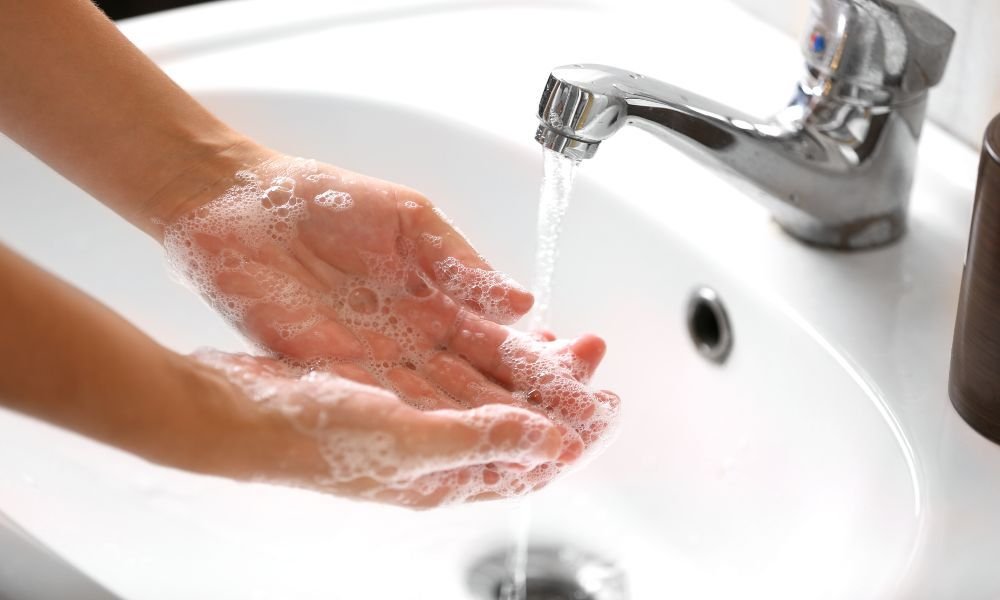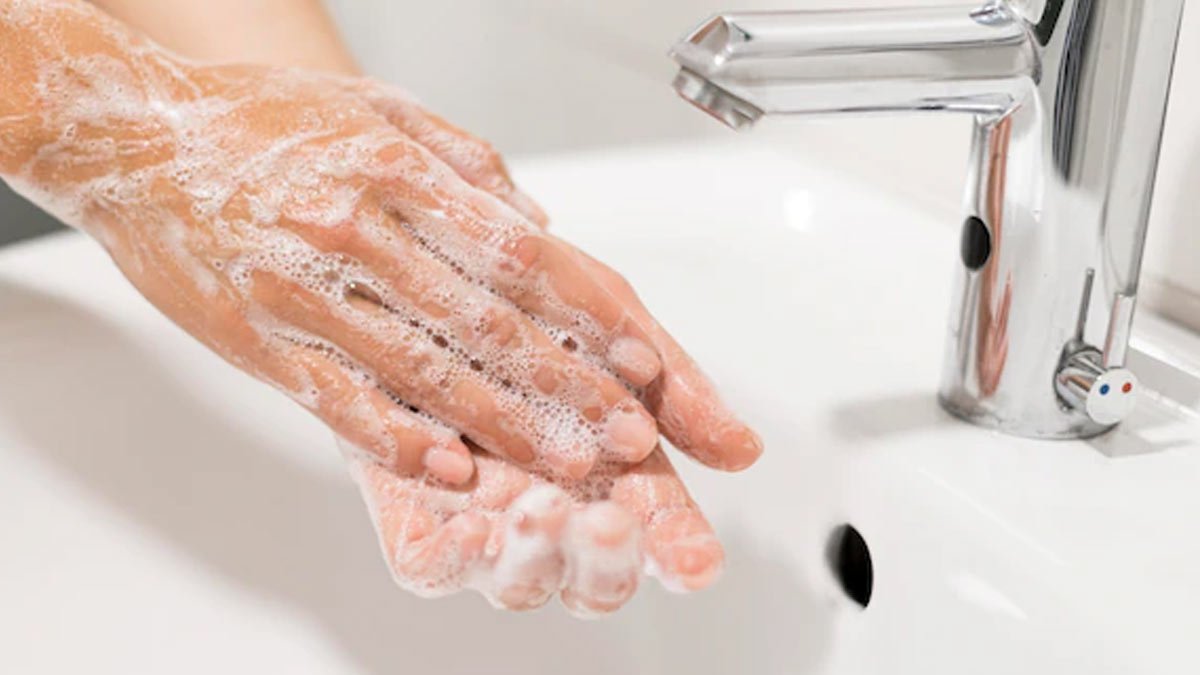With its focus on efficiency and speed, the fast-paced nature of contemporary life may sometimes have contradictory repercussions. The prevalence of respiratory allergies and infections has dramatically grown globally in recent decades, even though we have never used so many chemicals in our everyday lives. Hence, there are some common hygiene mistakes to avoid.
Understanding fundamental hygiene techniques is imperative to protect yourself and stop the transmission of germs. However, not everyone is aware of them, whether in wealthy or underdeveloped nations. Some basic and inherent laws are nonetheless often disregarded or overlooked. These are some errors to avoid.
Avoid These Hygiene Mistakes At Any Cost

1. Ignoring Hand Sanitization
You must be wondering why this one is on the list of common hygiene mistakes to avoid. Many of us unintentionally speed through the procedure by giving it a fast rinse. Put an immediate stop to this behavior and wash your hands for at least 20 seconds.
According to the US Centers for Disease Control and Prevention, handwashing with soap may prevent diarrhea in around one out of every three young children. This little action may drastically cut down on the transmission of germs.
2. Too Much Pressure While Tooth Brushing
One of the common hygiene mistakes is that people mistakenly believe that vigorous brushing is the best method for thoroughly cleaning their teeth. Excessive brushing may result in enamel abrasion and gum recession, which can weaken teeth and create sensitivity.
Instead of scraping over time, clean every crevice of your mouth from various perspectives with a soft-headed toothbrush. Use the right toothpaste and brush softly, considering how sensitive the region of your mouth is.
3. Not Taking Care Of Your Nails
Many of us forget to wash or clean our nails, even though we often wash our hands many times a day to get rid of bacteria. We can easily see if our nails are filthy if our hands are. Although the half-surface of the nails may be cleansed during hand washing, the filth below the nails is still there.
This is due to the fact that when we touch our faces or put our fingers in our mouths while eating, germs may easily enter. Furthermore, avoid growing your nails too long to give the dirt a home. Therefore, use a nail clipper to cut your nails, and always sanitize the tool before using it.
4. Carrying Your Phone To The Toilet
This may be an excellent method to keep oneself occupied when using the restroom. But as you know, the bathroom is a haven for germs, and they may quickly move to your body and other places where you carry your phone, such as your vehicle, dining table, work desk, bedroom, and couch.
Frequently using your phone and letting it partly pass through your face and ear as you chat might expose you and your family to harmless germs and make you sick.
5. Using Products Beyond Their Expiry Date
One of the common hygiene mistakes to avoid is that sometimes we forget to check the product’s expiration date, or it may expire at home since we haven’t utilized it in a timely manner, but we don’t want to throw it away because we paid for it. Products that are used beyond their expiry date may become less effective or cause infections or skin discomfort.
Make sure you don’t use anything that has expired, such as food, cosmetics, medications, and disinfectants. Make sure you utilize or consume products before they expire by keeping an eye on the expiration date while making purchases.
6. Using Items That Are Not Properly Sealed
Each product is designed with a specific packaging technique to ensure its durability and effectiveness. However, we often overlook the importance of checking seals, which can lead to poor performance or product failure. For example, wet wipes lose their effectiveness if the package isn’t properly sealed, and hand sanitizers with damaged seals may fail to kill germs effectively, as exposure to air can dilute the alcohol content.
This issue extends to other items as well, such as cosmetics and food. Proper sealing is essential to maintaining the integrity and functionality of products, ensuring they work as intended and remain safe to use. Always inspect packaging before use to avoid diminished quality and performance.
7. Disregarding Phone Cleanliness
Even if you follow a strict skincare routine, achieving flawless skin can still be challenging. One common hygiene mistake may be ignoring the hygiene of your phone. We frequently touch our phones with our hands, transferring bacteria, dirt, and oils onto the device.
These germs can then come into contact with your face when you use your phone, potentially causing breakouts and skin irritation. To prevent this, it’s important to regularly clean your phone to maintain good hygiene. Use alcohol wipes or a specialized electronic device disinfectant spray to wipe down your phone.
Regular cleaning helps remove harmful bacteria and other contaminants, reducing the risk of skin issues and promoting healthier, clearer skin. Remember, your phone is a high-contact item, so incorporating this simple step into your daily routine can make a noticeable difference in your skincare results.
8. Sharing Personal Belongings
Sharing is often seen as a sign of compassion, but it’s important to be cautious when it comes to personal belongings. While offering a helping hand or lending an item might seem kind, sharing personal items like cosmetic brushes, towels, or razors can lead to health risks. These objects come into direct contact with the skin, which makes them a potential breeding ground for viruses, bacteria, and fungi.
Using someone else’s items can easily transfer germs, putting you at risk for infections or irritations. It’s always better to offer alternatives or find other ways to help, without compromising hygiene and safety.
By being mindful of these risks, you can show kindness without endangering anyone’s health. Prioritizing personal hygiene and maintaining boundaries with personal items can prevent the spread of harmful microorganisms and keep everyone safe.
9. Inappropriate Food Storage And Handling
Simple mistakes in the kitchen can lead to the spread of harmful germs, increasing the risk of foodborne illnesses. Not washing your hands before handling food is a common error that can transfer bacteria from your hands to your meals.
Using the same cutting board for both raw and cooked food is another mistake that can cause cross-contamination, as harmful bacteria from raw ingredients like meat can be transferred to foods that are ready to eat. Additionally, failing to promptly refrigerate perishable items allows bacteria to grow rapidly, especially in warm conditions.
To prevent contamination, always wash your hands before cooking, use separate cutting boards for raw and cooked foods, and ensure that perishables are stored in the fridge immediately after use. By following these simple practices, you can significantly reduce the risk of spreading harmful germs and ensure food safety for yourself and others.
Why We Make Hygiene Mistakes
Hygiene is essential for maintaining health and preventing the spread of diseases, yet people often make common hygiene mistakes to avoid despite their importance. These errors typically stem from a combination of oversight, lack of knowledge, and ingrained habits.
One common reason for hygiene mistakes is complacency. Many people underestimate the importance of routine hygiene practices like handwashing, especially if they feel healthy. For example, skipping handwashing after using the restroom or before handling food may seem inconsequential, but it can spread harmful bacteria and viruses. This sense of invulnerability often leads to neglecting basic hygiene.
Another factor is misinformation or lack of awareness. Some individuals are unaware of the risks associated with actions like sharing personal items or improper food handling. For instance, using the same cutting board for raw meat and cooked food might not appear hazardous to someone unfamiliar with cross-contamination risks. A lack of education about these dangers can perpetuate unsafe practices.
Time constraints and convenience also play a role. In today’s fast-paced world, many prioritize speed over proper hygiene. Rushing through tasks may result in skipping steps like thoroughly cleaning utensils or properly storing perishables. Over time, these shortcuts become habitual, increasing the risk of hygiene-related issues.
Cultural and societal influences further contribute to hygiene mistakes. In some cultures, certain practices may not emphasize individual hygiene, or resources for maintaining cleanliness might be limited. Similarly, societal norms like shaking hands or sharing items can unintentionally encourage the spread of germs.
In conclusion, hygiene mistakes occur due to a mix of complacency, misinformation, time pressures, and cultural norms. Raising awareness, educating individuals on the importance of proper hygiene, and fostering better habits can significantly reduce these errors and promote healthier communities. A conscious effort to prioritize hygiene is essential for long-term well-being.
FAQ
Q: In terms of personal hygiene, what should be avoided?
A: Using harsh detergent powder to clean clothes, not reading the product’s ingredient list before using it, wiping perspiration off of our hands and then touching our faces, sharing personal hygiene products with others, and using disinfectant wipes on surfaces that come into contact with food are just a few of the mistakes we make.
Q: What are the four repercussions of poor hygiene?
A: Having detrimental social effects, handwashing, and improper cleanliness lead to health issues. Illness may be brought on by poor hygiene. In addition to social rejection, poor hygiene may result in bullying, low self-esteem, and lack of confidence.
Q: Does poor hygiene put people off?
A: A therapist claims that relationships may be significantly impacted by poor cleanliness. It may obviously impact physical closeness and attractiveness, but it can also have an impact on communication since it can lead to frequent arguments.











